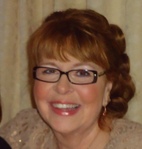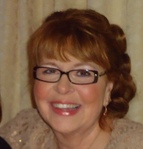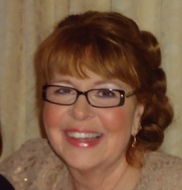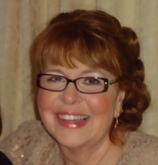 As I do research each month to try and find new ideas and discoveries in the news about Multiple Sclerosis, I'm finding new ideas difficult to find this month. A white paper published in March by the National MS Society titled Wellness for People with MS outlines the findings from a group of professionals. This excerpt from the paper summarizes their findings. People living with MS identify wellness as a high priority in their lives. They want to know what they can do today – particularly related to diet, exercise and emotional wellness – to feel and function at their best. In addition, they want the support of knowledgeable healthcare professionals who are armed with accurate information about wellness interventions, as they pursue their wellness goals. At a recent meeting convened by the National MS Society, people with MS, healthcare professionals, researchers and society staff summarized what is currently known about diet, exercise and emotional issues in MS; identified key questions to be answered in each of these areas, along with the research gaps and challenges to be addressed in order to arrive at the answers; made specific program recommendations to ensure that people living with MS are getting the personalized support and information they need to achieve wellness; and outlined next steps to move this important priority forward. After reading this paper, I reflect back on my history and on moving forward. I have so many unanswered questions. Obesity has been a major issue in my life both as a child and as an adult with MS. Approximately ten years ago, I underwent a gastric bypass and had extreme success. I was able to lose 200 pounds. The following year, I was diagnoses with MS. However, doctors felt that I probably had been living with the disease for many years. I have been obese my entire life and probably my heaviest between 20 and 30 years of age. Was MS caused by dietary intake? The answers to this question has not been researched enough. Does dietary intake increase relapses? What role does exercise play in MS? Hopefully with new research we will finally get some answers to these questions. Over the past ten years, I maintained the weight loss up until year eight, when I gradually started gaining again. I immediately returned to the weight loss experts, who didn't have enough data past eight years post op to give me any direct answers, and continue to struggle with definitive answers about obesity. So where does that leave us as patients? Here is what I know and what my research seems to make me believe. Eating healthy,nutritious food is essential in managing life with MS. There is no miracle diet in MS. Some believe in a low saturated fat diet, gluten free diets, fruit instead of refined sugar, no diet sodas, low fat dairy products, Paleo Diet and the list goes on. All of this is just very confusing to me. What I've learned is no one diet works for everyone. Keep saturated fats below 15 gms a day. That's a basic fact for anyone. It's really OK to have a piece of birthday cake. Don't do it every day, choose fruits more often. Eat vegetables (easier said than done for some of us). Asparatane, caffeine and alcohol can increase bladder issues if you have those health problems related to MS. However, you aren't going to get MS by drinking diet soda. As for the caffeine, it might reak havoc with your sleep. There have been studies that suggest a higher incidence of gluten intolerance in MS patients and their family members. This doesn't mean every MS patient should be gluten free. Hopefully, my thoughts are are depicting my true thoughts. There are no definite answers. What works or doesn't work for me may or may not work for you. Try things, be open to new ideas. Maybe one thing will work. That leads me to exercise. Move it or lose it seems like a good place to start. That said, for those of us with MS this is not always easy. I know it sure isn't for me. My balance fatigue and general health make exercise very difficult. It also doesn't help with decreasing or maintaining weight loss. Here's my advice. Take one day at a time. Every little bit or step helps. Use friends to help motivate you. Even sedentary movement helps. There may not be a cure for our disease, but it's not fatal. We all have different issues to deal with. Heart disease and cancer are the two highest causes of death in MS and yes in the general public. See we are just like everyone else. Whether it's fatigue, numbness, depression, bladder issues, or obesity, my biggest mantras are: one day at a time, one step at a time, and everything in moderation. I may not have given you five things in the news this month but hopefully this note has helped someone in some little way. Try and take what's hopefully going to be good weather coming soon and get outside and move, even if it's just one step at a time. A BIT ABOUT SUSAN...Susan is a registered nurse who worked in high risk obstetrics at Brigham and Women's for twenty years. She is also a certified nurse paralegal. She is currently not practicing as she is disabled because of MS. She was diagnosed 8 years ago with RRMS and has a daughter who also has MS.  Seems like forever since I've had the time to sit down and write a blog. Now that the holidays are over and the snow has settled in, it reminds me of how MS patients sometimes feel isolated at this time of year. Whether you are too tired to navigate the snow or like me; just not sure of myself on the ice and snow, there are ways to navigate these things. With three artificial joints and counting, I know I am very reluctant to venture out. However, sometimes bread and milk do need to be replaced. If friends and family can't help, here are my strategies.
Reach out, don't be alone. Email me if you just want to chat. I'm here trying to stay warm and keep enough bread and milk in the house. Stay cozy and safe. Susan A BIT ABOUT SUSAN...Susan is a registered nurse who worked in high risk obstetrics at Brigham and Women's for twenty years. She is also a certified nurse paralegal. She is currently not practicing as she is disabled because of MS. She was diagnosed 8 years ago with RRMS and has a daughter who also has MS.  Often I find myself wondering what can I possibly write about on this site. It seems appropriate today to just send out a reminder that no one is alone. After hearing of the death of one of my favorite actors and comedians, it reminded me of depression in MS patients. When I was first diagnosed, I thought my world had ended. Despite everything I read, and my normal half glass full attitude, as the days passed by and the doctors appointments increased in numbers, depression ensued. I went from being a healthcare provider who supported patients and encouraged them daily, to a nurse who didn't want to wake up each and every day. A mother who only thought of how bad life was and who didn't want to participate in anything. I couldn't get motivated for anything. I became withdrawn and recluse, feeling so alone. Finally, I reached out to a nurse practitioner at my physicians office. She used the exact words I had been telling my patients for years. If you break a leg,you go to the doctor for X-rays and a cast. Depression is just another condition that affects the brain and is treatable. As much as I fought the treatment, once I began anti depressant, the fog finally began to lift. I began to enjoy life again. Depression is very common as we all know. I needed the drugs for around a year and once I became more educated about MS, participated in therapy, I found that I could accept my illness and come off the drugs. Don't despair. If you find yourself feeling alone even when you have family and friends in your life, get help. This feeling of being alone and wanting it to go away is temporary. Reach out to so done. Don't do anything permanent to end a temporary bump in the road. -Susan, RN  It's been awhile since my last blog. I've been dealing with a broken foot, which in turn, irritated my back fusion and overall MS fatigue from traveling. After advice from Tom Mellor about scooters, I decided to try one on for size during my recent trip to Nashville. I was very nervous about using a scooter and was worried it would be heavy and cumbersome. Overall, I just didn't want to give in to using one. I did some research and found a medical supply store just ten minutes from the Nashville airport. Although Tom recommended the GoGo scooter, I was not able to find that brand. However for 100 dollars I rented a portable scooter which broke down into five pieces. The store explained everything to me about the easiest ways to break down and the quickest ways to put together. Not really thinking about the scooter, we rented a large SUV and actually only had to take one part off to store in the back of car. It was light enough for my daughter and her friend to lift without difficulty. Let me say, they really need to give driving lessons on scooters. It took me a few days to adjust but boy was it a God send. We were in a Nashville for the CMA Festival and just getting around the football field would of been impossible for me. Overall, I loved it. As for negatives, it really was not useful trying to get around downtown Nashville. The large number of people, uneven turf and not enough ramps made it very difficult to use under those circumstances. I was also very surprised at how others have no consideration for handicap patrons. I'm sure with time and use, I would become a much better driver and find ways to utilize the scooter efficiently. I know there may come a time when it may be a necessary requirement. I can honestly say, there really wasn't anything to worry about, it's just a necessary step of acceptance. It's hard to ask for help or admit that we need the help. I can also say, after four days, I had my fill of country music. However it won't be the last time I will experience life on a scooter. --Susan |
If you would like to become a blogger, please contact us and let us know!
CLICK ON THE RSS FEED ICON BELOW TO GET A LIST OF ALL OUR PATIENT BLOGS
Archives
October 2020
Categories
All
|
- Home
- About Us
- Virtual MS Center
- News & Resources
- Seminar Registration
- Health & Wellness
- Blogs
- About MS
-
Symptoms
- Balance and Walking Issues
- Breathing/Respiratory
- Bowel Dysfunction
- Cognitive Dysfunction
- Crying/Laughing Uncontrollably (PBA)
- Depression and Anxiety
- Dizziness/Vertigo
- Dysphagia
- Fatigue
- Foot Drop
- Hearing or Smell or Taste Changes
- Heat Sensitivity
- Leg Weakness
- Loss of Hand Dexterity and Coordination
- Memory and Mutliple Sclerosis
- Migraines
- Numbness/Tingling/Altered Sensation
- Nystagmus and Oscillopsia
- Pain
- Sexual Dysfunction
- Sleep Issues
- Spasticity/Spasms/Cramps
- Speech/Swallowing
- Urination/Bowel Problems
- Vision
- MS Clinics
- MS Topics
- Register With Us
- Terms of Use/Privacy/HIPAA
- MS HealthCare Journey

 RSS Feed
RSS Feed
